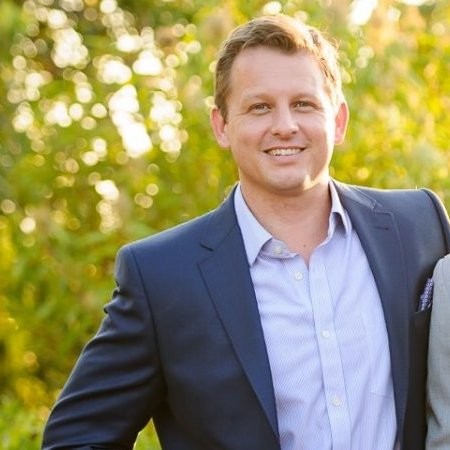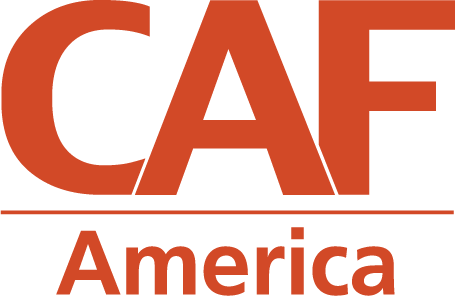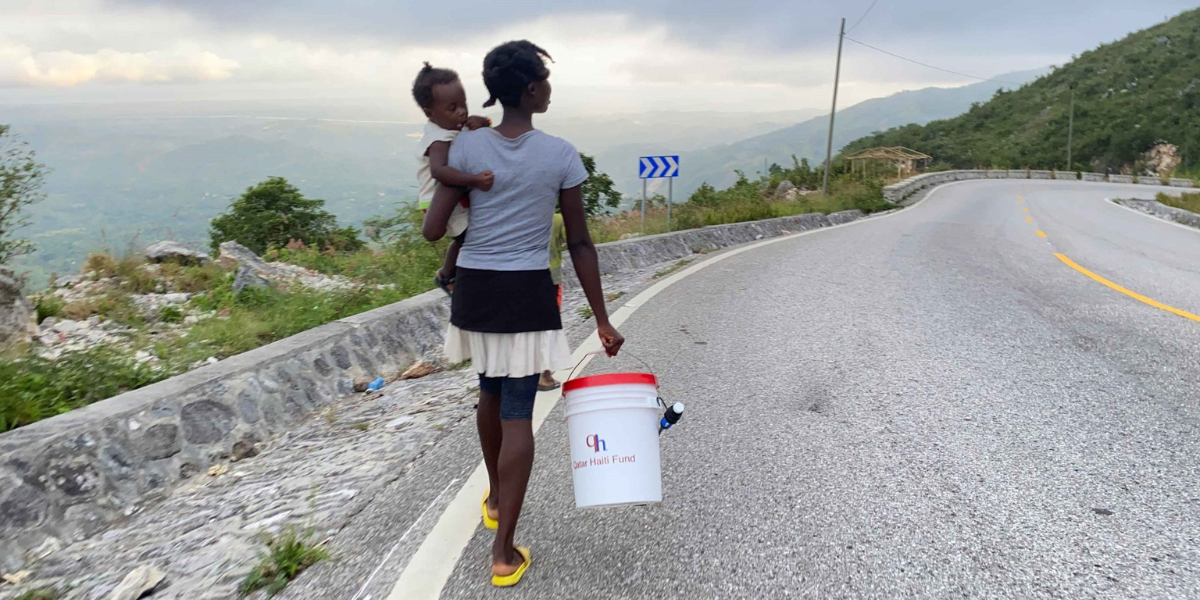On August 14, 2021, Hope for Haiti, a US-based nonprofit focused on improving the quality of life for Haitian people, found its local headquarters in Les Cayes, Haiti at the epicenter of a massive earthquake. The timing of the quake could scarcely have been worse for Haiti, which already faced a healthcare system hobbled by the COVID-19 pandemic and an ongoing political crisis. But as the earth shook, Hope for Haiti, empowered by generous grants provided by CAF America at the recommendation of US donors, sprang into action to provide humanitarian and medical relief to the disaster’s worst-hit victims.
Acting on the express request of the Haitian government, Hope for Haiti’s team braved fuel shortages and driving conditions made hazardous by earthquake damage to send a fleet of mobile clinics into the countryside. Through these hospitals on wheels, the organization helped relieve rural communities in southern Haiti, bringing aid in the form of triage, wound treatment, medical consultation, and an impressive 20,000 water filtration systems to families impacted by the earthquake.
Hope for Haiti’s ongoing plan of response to the earthquake has been nothing short of ambitious. Within the next two years, Hope for Haiti aims to import 60 million dollars in medication and medical supplies, conduct 50,000 medical consultations, and distribute 30,000 water filtration systems, and they are well on their way to meeting them. As a prime example of their growth to scale, Hope for Haiti’s CEO, Skyler Badenoch, pointed to the organization’s completion of 23,000 medical consultations over the past three months – typically the number of consultations the charity does in a single year.
Funds from CAF America have contributed to Hope for Haiti’s success in responding to the earthquake, with a $392 grant recommended by a corporate donor in September 2021 providing the organization with the means to make a significant positive impact on the lives of those affected by the disaster. Though modest in size by US standards, the grant’s value has been substantial, equipping Hope for Haiti with funds that might be used to pay for 6 water filtration systems, 28 medical consultations, or a cash transfer to a needy family of 38,770 in Haitian currency.
Subsequent grants to Hope for Haiti have provided the organization with even more resources to reach Haitians affected by the earthquake. Since October 2021, the organization has received more than $40,000 in grants delivered through CAF America. These funds have given Hope for Haiti the means to:
- Purchase, import and distribute thousands of dollars’ worth of medication, medical supplies, and water filtration systems to Haitians in need;
- Conduct hundreds of medical consultations through Hope for Haiti’s mobile clinics;
- Assist communities recovering from the earthquake through the removal of rubble and rehabilitation of damaged infrastructure.
Hope for Haiti’s work has also attracted support from the other side of the Atlantic, with British donors contributing an additional $4,240 in grants to the organization through Charities Aid Foundation in the United Kingdom.
Beyond grant funding, Hope for Haiti has attributed their overall success in spite of harsh working conditions to their ability to plan ahead according to what their Chief Development Officer, Stephanie Jepsen, called a “comprehensive model for sustainable, community-based development.” As a product of working in a country that routinely faces natural disasters, the organization has had to develop a culture of readiness. Moreover, through a combination of past experience and careful planning, Hope for Haiti has found a framework for success that still leaves plenty of room for innovation. “We’re not shy at Hope for Haiti to try new things, and I think that’s been really important to our donors to give us that flexibility,” stated Jepsen. “We’re very fortunate to have had a lot of flexibility to see what works and build on that.”
Building and adapting based on “what works” is part of Hope for Haiti’s DNA. Beginning as a small charitable project by JoAnne Kuehner to provide children in Haiti with access to education, Hope for Haiti gradually expanded its mission over three decades to include healthcare, water filtration, sanitation, and healthcare and sanitation (WASH), and economic development. This was accomplished, said Jepsen, because of Hope for Haiti’s focus on building “commitments that last, strengthen and empower.”
Hope for Haiti shared important lessons of resilience for other charities, pointing to the invaluable role investing in good leadership has played in the organization’s success. “We can have a strategic plan, a fundraising plan, a marketing plan, and a programmatic logical framework that is best in class,” asserted Badenoch, “but nothing happens without the leadership – our plans are only as good as the people implementing them.”
Profiles in Philanthropy

Skyler Badenoch, Hope for Haiti CEO
Mr. Badenoch joined Hope for Haiti as its Chief Executive Officer in 2017. Under his leadership, the organization hopes to double the number of children it reaches through its programming. Badenoch’s signature issues at Hope for Haiti include education and learning outcomes, infrastructure development, social business investment, expansion of a clean water portfolio, and monitoring and evaluation.
Prior to joining Hope for Haiti, Mr. Badenoch worked for buildOn, where he spent 10 years managing participatory school construction programs in Haiti, Nicaragua, and Malawi. During that time, he helped raise more than $10 million to support global education and the construction of more than 500 schools in rural villages in the developing world. Badenoch now serves as a global board member at buildOn, where he advises senior leadership on key partnerships and development.
Badenoch was a Peace Corps Volunteer in Cote d’Ivoire, received his undergraduate degree in Economics at the University of Arizona, and earned a Master’s degree in International Development Studies at the George Washington University. He currently resides in Scottsdale, Arizona with his wife, Sahar, and his two daughters, Lillian and Layla.
Follow Skyler on social media at @skylerbadenoch.

Stephanie Jepsen, Hope for Haiti Chief Development Officer
Stephanie Jepsen has a passion for fundraising and international development and has been working in the non-profit sector for over 16 years. Beginning her career as the Communications Manager for Cristo Rey St. Martin College Prep in Waukegan, IL (a school modeled after Cristo Rey Jesuit High School in Chicago), she helped launch the school in 2004. Next, she worked as the Development Officer for the Legal Assistance Foundation of Metropolitan Chicago, the largest provider of civil legal aid in Cook County. For the last 12 years, Stephanie has led the Hope for Haiti development team to cultivate a global community of support and ultimately raise the critical resources needed annually to implement sustainable and community-driven programming proven to alleviate poverty.
Stephanie graduated cum laude with a bachelor’s in International Studies from American University in Washington, D.C. and holds a master’s from Trinity College Dublin.

